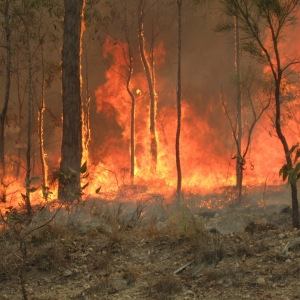The Stream, November 15, 2019: Mass Pig Cull in South Korea Causes Water Contamination Worries
The Global Rundown
A massive pig slaughter in South Korea raises water contamination concerns. Residents of deluged Venice, Italy, criticize the incompletion of “Mose,” a €6 billion ($6.6 billion) flood protection project designed in 1984 but still unfinished. China is set to spend more than $150 billion on the long-term negative impacts of the Three Gorges Project, a massive dam and reservoir on the Yangtze River. A “dead zone” in Lake Erie may be the cause of brownish tap water in Cleveland, Ohio. House flippers in San Antonio, Texas, seek out homes where water service has been shut off.
“That’s targeting people who are in desperate circumstances. I can’t even describe my level of disgust with that.” –Cherise Rohr-Allegrini, president of the Lavaca Neighborhood Association, in reference to house flippers in San Antonio, Texas, who use public water shutoff records to identify sales leads. In recent months, the city’s water utility received 84 requests for lists of customers whose water had been shut off. The majority of requests came from real estate investors, who then offer below-market cash deals to residents who are struggling to keep their utilities running. San Antonio Mayor Ron Nirenberg called the practice “predatory” and urged State legislators to reconsider the ease of access to such records. The Rivard Report
In context: When the Water Is Shut Off.
Latest WaterNews from Circle of Blue
Climate Change Magnifies Health Risks at Every Stage of Life — Floods, droughts, and warming temperatures are already increasing health and disease risk, benchmark Lancet Countdown report finds.
A Sinking Metropolis — A day in the life of Jakarta—a city drowning in water insecurity.
By The Numbers
380,000 Hogs that have been culled in South Korea since September in an attempt to stop the spread of African swine fever. Local media reported that the slaughter of 40,000 pigs contaminated the Imjin River with blood this week, prompting the government to set up dikes and conduct water testing. No contamination was found in the testing, but the government said it will also check sites where hogs have been buried to ensure that there are no leaks. Reuters
600 billion yuan ($86 billion) Amount spent since 2011 to mitigate the negative long-term effects of China’s Three Gorges Project on villages along the Yangtze River. The extensive hydropower project, which includes a dam and reservoir to control flooding and assist in navigation, also caused rising water levels and earthquakes along the waterway. The government has said it will spend another 600 billion yuan by 2025 to address ongoing issues. Reuters
Science, Studies, and Reports
For the past 20 years, tap water in Cleveland has occasionally taken on a yellow or brownish tint, although city officials say it is still safe to drink. Researchers now believe the discoloration may be due to a “dead zone” that has developed in the bottom of Lake Erie as algae blooms have become more common in the waterbody. When the algae and bacteria dies, it sinks to the lake bottom and rots, depleting oxygen and leading to a release of heavy metals such as manganese and iron. From there, the metals can infiltrate the water system, as well as corroding lead and copper water lines. Chicago Tribune
In context: Limits Set To Stop Lake Erie Algae Blooms.
On the Radar
Amid Venice’s worst flooding since 1966, are venting their frustrations at a €6 billion ($6.6 billion) project designed to protect the city from high tides has yet to be completed. The project, called “Mose,” was designed in 1984, but has been beset with delays and corruption. The most recent estimates say the project will be finished in 2021. The Guardian
Kayla Ritter is a recent graduate of Michigan State University, where she studied International Relations and Teaching English to Speakers of Other Languages. She is currently based in Manton, Michigan. Kayla enjoys running, writing, and traveling. Contact Kayla Ritter






Leave a Reply
Want to join the discussion?Feel free to contribute!